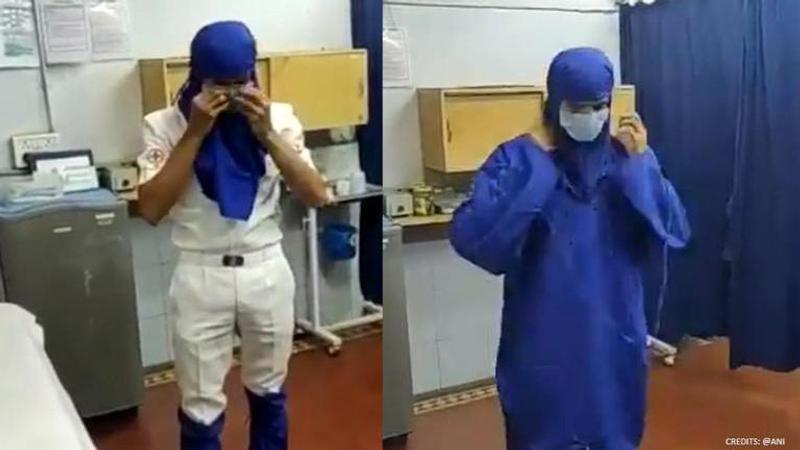Published 18:37 IST, April 3rd 2020
COVID-19: Naval Dockyard makes PPE to support health care workers
Mumbai’s Naval Dockyard created a short video after they designed public protective equipment to help doctors and medical staff combat the COVID-19 pandemic.

Mumbai’s Naval Dockyard created a short video after they designed public protective equipment to help doctors and medical staff combat the pandemic. Indian Navy said that the video has been made to show support towards frontline medical professionals fighting against the coronavirus pandemic. In the video posted by ANI, a person can be seen wearing a PPE to minimise the exposure to coronavirus.
The Naval Dockyard has also designed and developed its own Infra-red based temperature sensor for screening personnel entering the premise. They used in-house resources to develop the instrument at a manufacturing cost of less than a thousand rupees, very low cost compared to the Temperature Guns available in the market.
The non-contact thermometer has an infrared sensor and an LED display integrated with a microcontroller which runs on a 9V battery. The Dockyard of the Western Naval Command (WNC) has an average influx of around 20,000 personnel every day which created a huge demand for PPEs.
Call for low-cost methods
The government of India has called upon scientists, startups, and other public and private organisations across the country to come together and develop low-cost and improved methods to help combat the virus. ISRO's rocket producing wing - the Vikram Sarabhai Space Centre (VVSC) - is actively contributing to the nation's fight against the deadly coronavirus. According to reports, the VVSC is preparing to produce ventilators, oxygen canisters, hand sanitizers and masks for COVID-19 patients.
A group of young engineers working for a Pune-based startup, which makes water-less solar plant cleaning robots, are also building a low-cost ventilator which will cost Rs 50,000, almost one-third the price of current ventilators made by other Indian companies. Meanwhile, women researchers at the Banaras Hindu University (BHU) have reportedly developed a new testing method that would give the results with hours.
Updated 18:27 IST, April 3rd 2020




